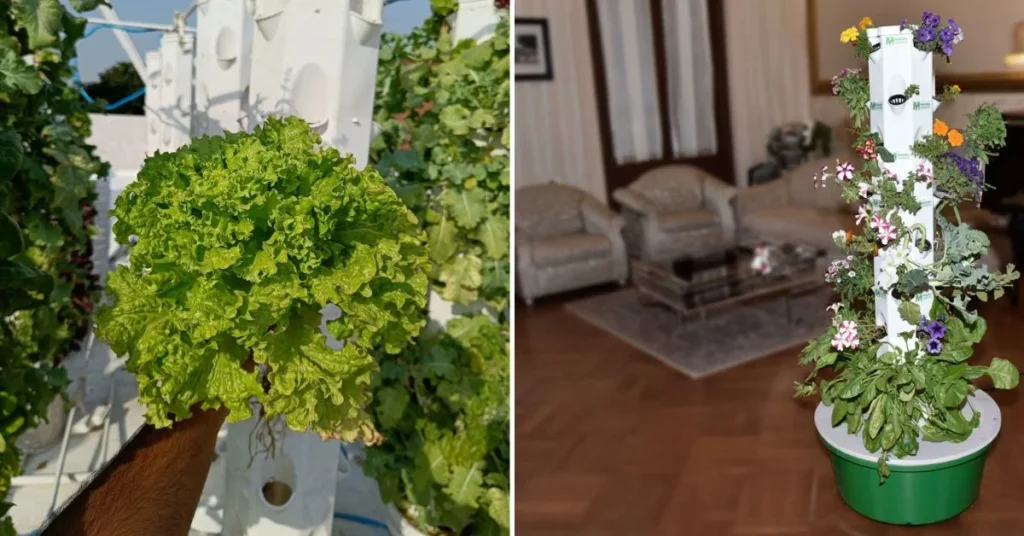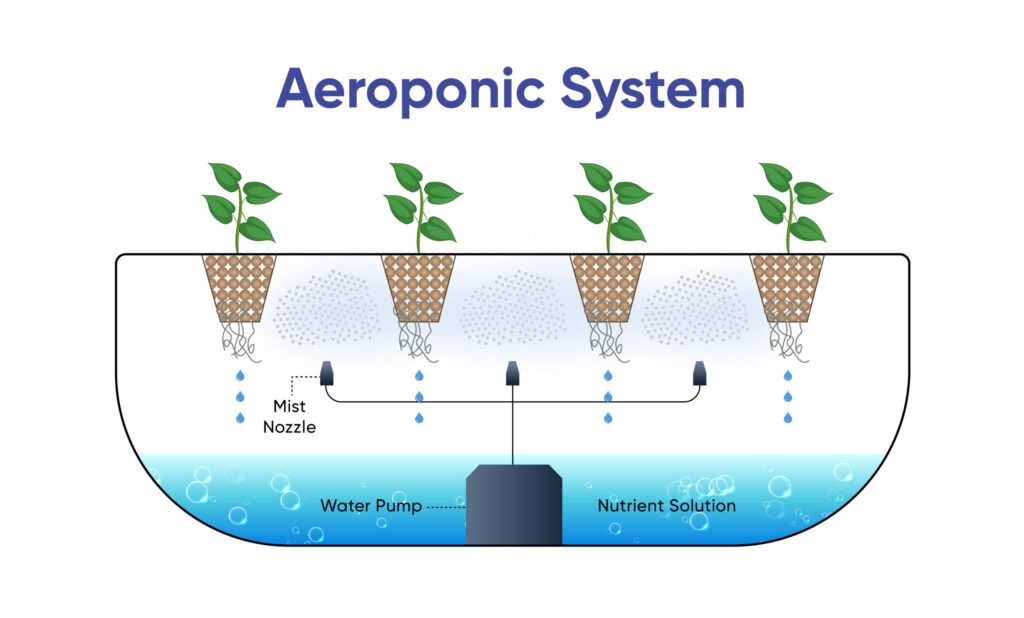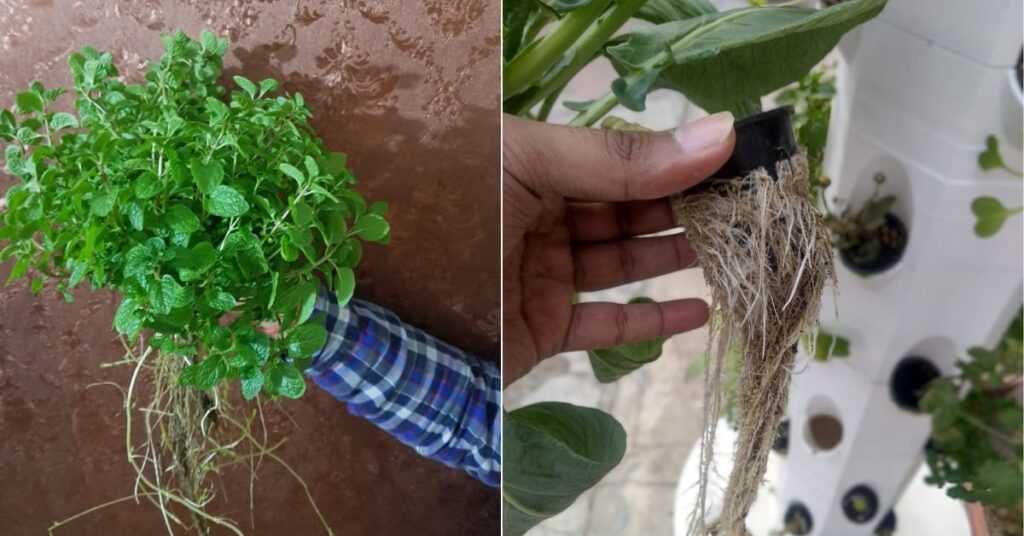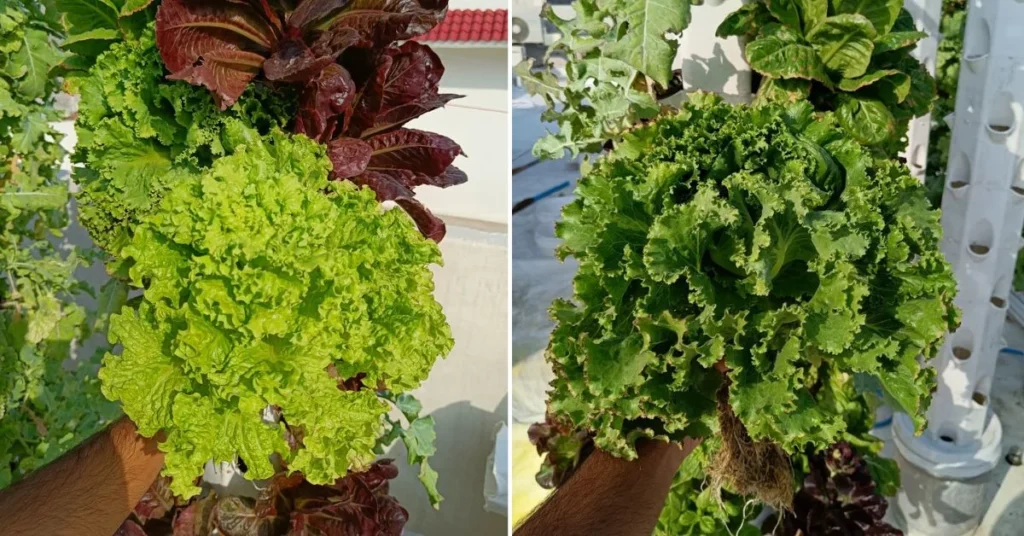In the urban landscape, cultivating food is difficult due to challenges like limited space, contaminated soil, and a scarcity of green areas. With increasing population densities, land for traditional agriculture activities is not available easily, constricting cultivation spaces to balconies and small outdoor nooks. Recognizing the restricted environments of urban living, where conventional gardening is often impractical, Macrogardens offers a unique solution in the form of aeroponic towers by making urban agriculture more accessible, space-efficient, and environmentally friendly and transforming the way individuals cultivate their own produce.
“Food cooked using freshly harvested produce is better in its texture and flavour. Whenever I harvest kakdi (cucumber), my mother finds it juicy and soft. But generally, by the time vegetables from outside reach our plate, they lose their freshness and nutrients.” Says Prakhar Agarwal, Founder of Macrogardens.
“A large number of people want to grow their food, but with a rising population and decreasing farmland, aeroponics seems to be the future of farming. I wish for every city dweller to grow their own pesticide-free food with this system,” he adds.
Sowing the Seeds of Innovation: The Genesis of Macrogardens
Founded by Prakhar Agarwal and Tanay Tiwari, Macrogardens was started as a response to the challenges often faced by people who stayed in cities and did not have enough space to grow their produce. The idea behind this startup can be traced back to Prakhar’s passion for growing vegetables. But due to limited space in urban environments, he faced difficulties on the way to realize his passion. Fueled by this challenge, Prakhar, a computer science graduate, started on a journey to bridge the gap between technology and agriculture.

The founders wanted a solution that could fundamentally change the process of growing food and go beyond the traditionally practiced soil-based methods. The concept took root in the form of an aeroponic tower which was an innovative vertical system designed to maximize space efficiency and transform the urban agricultural system. Prakhar and Tanay, drawing from their diverse backgrounds, collaborated to breathe life into a venture that would redefine the possibilities of cultivating fresh produce in the heart of densely populated Indian cities.
“Once, I drank sugarcane juice from a street vendor and fell sick. It was so bad that I was sick for nearly four months. I knew it was high time that we grow our own food at home,” Prakhar says.
The idea behind Macrogardens started in 2020 at IIT Kanpur where Prakhar and Tanay were on a mission to help individuals, much like themselves, to start growing their food, irrespective of the limitations posed by urban living. In the following years, Macrogardens grew from a passion project into a beacon of hope for urban agriculture enthusiasts.
Aeroponic Wonders: Growing 32 Plants in the Space for 2
Abhishek who was determined to protect his family from the dangers that come with eating pesticide-laden vegetables turned to the innovative aeroponic tower for a solution. To his delight, this vertical marvel which just occupied a foot of space helped him to cultivate 32 plants where only two could have grown before.
“This tower occupies as much space as a person takes while standing. And in this small space, I am growing several plants like ladyfingers and lettuce. I harvest lettuce for my salad every single day! Next, I am planning to grow bell peppers,” Abhishek shares.
In Abhishek’s kitchen garden, the aeroponic tower has become a game-changer helping to grow vegetables such as ladyfingers and lettuce. Moreover, the ease of use and low maintenance of the system allowed him to add two more towers.
The brainchild of Lucknow-based Prakhar Agarwal and Tanay Tiwari, the aeroponic tower suspends plant roots in the air, irrigating them with a nutrient-dense mist. This unique vertical system addresses the scarcity of space in small apartments and balconies in bustling cities. The founders, inspired by a shared vision to make home gardening more accessible, embarked on a journey to create a vertical solution that not only optimizes space but also transforms the urban agricultural landscape.

After extensive research and design iterations, the duo successfully crafted an aeroponic tower which was suitable for small apartment balconies. This tower constructed with food-grade plastic and featuring 32 modules helped urban residents to grow 30 times more produce at a 20% faster rate compared to soil-based setups. Beyond the quantitative benefits, the aeroponic wonders of Macrogardens provide a sustainable and efficient solution for individuals who want to start their journey of homegrown agriculture transforming limited spaces into abundant harvests.
“This is when I came across the soilless hydroponic and aeroponic systems. While hydroponics requires a horizontal system using PVC pipes that end up taking up a lot of space, I wanted a small setup suitable for a balcony,” says the 25-year-old founder of Macrogardens.
The Unique Aeroponic Tower by Macrogardens
The Aeroponic Tower is a compact and efficient tower that becomes a green oasis even in the smallest of spaces, offering a viable solution for those living in densely populated urban areas. This aeroponic tower not only maximizes space utilization but also embodies a sustainable approach to farming.
Unlike horizontal hydroponic setups, the vertical design of Macrogardens’ tower optimizes space, making it a perfect fit for small apartment balconies. Macrogardens’ unique aeroponic tower presents numerous advantages, marking a paradigm shift in urban agriculture.

“This vertical tower is also low on maintenance. I just have to add nutrients once in 7 to 10 days. I am so happy with this product that I am planning to purchase two more such towers,” adds the software engineer, Pranav.
“As we wanted to optimise space, we wanted to develop something vertical unlike a horizontal PVC pipe hydroponic setup,” he says adding that finally, after working on at least 20 designs, the friends came up with an aeroponic tower that was suitable for balconies in small apartments.
One notable benefit is the increased air exposure that plants receive in the aeroponic environment. This design ensures optimal plant growth by maximizing airflow around the plant and minimizing contact between the plant and the support structure. Moreover, clean air is essential for natural plant growth, and Macrogardens’ aeroponic system ensures unrestricted access to air, reducing the risk of plant damage and disease formation.
Macrogardens’ Water-Saving Aeroponic System
Macrogardens’ innovative aeroponic system stands out not only for its space efficiency but also for its remarkable water-saving capabilities. In a world where water scarcity is a growing concern, the aeroponic tower crafted by Prakhar Agarwal and Tanay Tiwari offers a sustainable solution for urban agriculture. The system’s design allows for the efficient use of water resources by delivering nutrient-dense mist directly to the plant roots. Compared to traditional soil-based systems, Macrogardens’ aeroponic tower boasts a water-saving potential of up to 95%.
The key to this impressive water conservation lies in the aeroponic technology itself. The system utilizes a closed-loop mechanism that minimizes water wastage through transpiration, evaporation, and surface runoff. The aeroponic tower’s automated watering system ensures precise delivery, optimizing the use of every droplet. With a water tank capacity of 65 litres, the system can sustain plants for 20 to 30 days without any maintenance, providing a practical solution for individuals who may be away from home for an extended period.

“Apartments, especially in cities like Bangalore and Delhi, do not have enough space for gardening. It allows you to keep very few plants. But with aeroponic towers, anyone can grow 30 times more produce at a 20 percent faster rate compared to a soil-based setup,” Pranav says.
Giving an example, the engineer explains, “One would require a space of four square feet to grow two cauliflowers. But one can grow 64 cauliflowers in the same area using aeroponic towers. We have given 32 pods in one tower that allows the growth of two saplings in each pod.”
As urban areas struggle with the challenges of limited space and increasing population density, the ability of Macrogardens’ system to cultivate a variety of vegetables using minimal water becomes a crucial factor in shaping a more sustainable and resilient future for urban agriculture. In addition to water conservation, the aeroponic system contributes to minimizing environmental impact by reducing the need for pesticides. The closed-loop and isolated nature of the system limits disease transmission, reducing the reliance on chemical interventions.
Macrogardens’ Affordable Tower for Every Balcony
Priced at Rs 6,500, the Macrogardens aeroponic tower is not only space-efficient but also an economically viable option for those keen on growing their own fresh produce. The affordability of the aeroponic tower extends beyond its initial price.
Prakhar Agarwal, the founder, ensures that users get a full package that includes seeds, cocopeat as media, and a nutrient mix comprising nitrogen, phosphorus, potassium, iron, and trace elements. This all-inclusive approach not only simplifies the process for users but also eliminates the need for separate purchases of essential components, making it a cost-effective and user-friendly solution for aspiring urban gardeners.

By offering an aeroponic system at an accessible price point, the startup aims to empower individuals to take control of their food sources, irrespective what their economic background.
The Macrogardens’ affordable tower not only addresses the financial aspect but also serves as an invitation for more people to participate in sustainable and space-efficient farming. With the potential to grow 30 times more produce compared to traditional soil-based systems, this affordable aeroponic tower not only fits into the smallest of balconies but also into the broader narrative of creating a greener, more self-sufficient urban landscape for everyone.
With this, Prakhar aims to see a behavioural change among urban residents. “Food cooked using freshly harvested produce is better in its texture and flavour. Whenever I harvest kakdi (cucumber), my mother finds it juicy and soft. But generally, by the time vegetables from outside reach our plate, they lose their freshness and nutrients. A large number of people want to grow their food, but with a rising population and decreasing farmland, aeroponics seems to be the future of farming. I wish for every city dweller to grow their own pesticide-free food with this system,”
Join The Story Watch’s initiative to create a vibrant community for the startup ecosystem.

